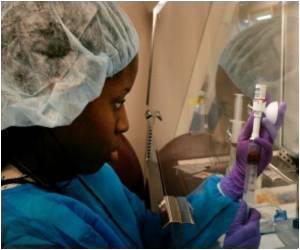An unique way to treat cancer has been suggested by scientists.

This dendritic cell (DC) vaccine, developed at Dartmouth, was used after surgical resection of metastatic tumors to try to prevent the growth of additional metastases.
"The results of the study suggest a new way to approach cancer treatment," said Richard Barth Jr., Chief of General Surgery at Dartmouth-Hitchcock Medical Center and a member of the Gastrointestinal Clinical Oncology Group at Dartmouth-Hitchcock Norris Cotton Cancer Center, who is the study's principal investigator.
"Basically, we've worked out a way to use dendritic cells, which initiate immune responses, to induce an antitumor response."
Dendritic cells are critical to the human body's immune system, helping identify targets, or antigens, and then stimulating the immune system to react against those antigens.
The new research grew dendritic cells from a sample of a patient's blood, mixed them with proteins from the patient's tumor, and then injected the mixture into the patient as a vaccine.
Advertisement
In the study, Barth first operated on 26 patients to remove tumors that had spread from the colon to the liver. While some of these patients would be expected to be cured with surgery alone, most of them would eventually die from tiny metastases that were undetectable at the time the tumors were removed from the liver.
Advertisement
he patients were followed for a minimum of 5.5 years.; Five years after their vaccine treatment, 63pc of the patients who developed an immune response against their own tumor were alive and tumor-free. In contrast, just 18pc of the patients who did not develop an immune response against their own tumor were alive and tumor-free.
"We showed that a tumor lysate-pulsed DC vaccine can induce immune responses against the patient's own tumor in a high proportion of patients," stated Dr. Barth, who has been investigating DC-based vaccines in mice and patients for more than 10 years.
The study has been described in the journal Clinical Cancer Research.
Source-ANI














